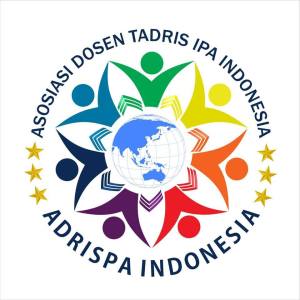INFLUENCE OF APPLICATION OF STEM LEARNING MODEL WITH SOSIOEMOTIONAL APPROACH TO IMPROVE LOGICAL THINKING ABILITY
DOI:
https://doi.org/10.21154/insecta.v3i1.4198Keywords:
Logical Thinking Ability, STEM Learning Model, Socioemotional ApproachAbstract
The ability to think logically is one of the complex skills of the 21st century that is important to prepare for the world of work. But in fact students' logical thinking skills tend to be low because the learning model applied by the teacher tends to be monotonous so that understanding of the material and student activity becomes less. The STEM learning model with the socioemotional approach is one model that can solve these problems because it is an innovative learning model that is also integrated from several socioemotional-based disciplines that emphasizes student activity and is based on real-world problems so that it is suitable for improving logical thinking skills. This study aims to determine the relationship between the STEM learning model and the socioemotional approach in improving logical thinking skills. This research uses quantitative method with Quasi Experimental Design research type . Data were obtained from class VIII MTs Ma'arif Al-Mukarrom through observation and tests. The instruments used are learning tools (syllabus, lesson plans, and LKPD), observation sheets of student activities and implementation, and written tests of logical thinking skills. Data analysis using T test and N-Gain. The results showed that the implementation of the STEM learning model with a socioemotional approach was 89.50% and student activity was 90.84% in very good criteria. The T test results show a significance of 0.003 less than 0.005 so it can be concluded that there is a significant effect between the STEM learning model with the Socioemotional approach in improving logical thinking skills, also the N-Gain Test proves that the STEM learning model with the Socioemotional approach is more effective than the conventional model in improving logical thinking skills.References
Ahmad, R., & Ahmadi, H. A. (1991). Pedoman penyelenggaraan administrasi pendidikan sekolah. Bumi Aksara.
Anggraini, D., & Irawan, E. (2021). Analisis Kemampuan Berpikir Logis Siswa Kelas VII pada Tema Pencemaran Lingkungan. Jurnal Tadris IPA Indonesia, 1(2), 228”“238.
Anggraini, F. I., & Huzaifah, S. (2017). implementation of STEM learning in secondary schools. Program Studi Pendidikan Biologi Fakultas Keguruan Dan Ilmu Pendidikan Universitas Sriwijaya, 4(1998), 725.
Arifin, R., & Irawan, E. (2020). The Effectiveness of Discovery Learning with Truth or Dare Technique in Improving Students’ Logical Thinking Ability. INSECTA: Integrative Science Education and Teaching Activity Journal, 1(2), 121”“129. https://doi.org/10.21154/insecta.v1i2.2388
Astuti, S. I., Arso, S. P., & Wigati, P. A. (2015). 済無No Title No Title No Title. Analisis Standar Pelayanan Minimal Pada Instalasi Rawat Jalan Di RSUD Kota Semarang, 3, 103”“111.
Djamarah, S. B., & Zain, A. (2010). Strategi Belajar Mengajar Jakarta: Rineka Cipta. Kemampuan Spasial.
Hendriyani, I. (2010). Pengaruh Model Pembelajaran Tandur Terhadap Hasil Belajar Fisika Siswa. 185. http://repository.uinjkt.ac.id/dspace/bitstream/123456789/1948/1/6028 IIN HENDRIYANI-IPA-FITK.pdf
Mei Alfian Nita. (2017). Pengaruh Kecerdasan Emosional Terhadap Kemampuan Berpikir Kritis Siswa Pada PokokBahasan Barisan dan Deret Aritmatika Kelas XI Program Keahlian Jasa Boga di SMA Negeri 1 Ngasem. Simki-Techsin, 01(01), 1”“7.
Mukhlis, A., & Mbelo, F. H. (2010). Analisis perkembangan sosial emosional anak usia dini pada permainan tradisional. PRESCHOOL Jurnal Perkembangan Dan Pendidikan Anak Usia Dini, 1, 11”“28.
Mulyani, D. F., & Arif, S. (2021). Implementation of Project Based Learning (Pjbl) Based on Science, Technology, Engineering and Mathematics (Stem) To Improve Metacognitive Thinking Ability. INSECTA: Integrative Science Education and Teaching Activity Journal, 2(1), 117”“129. https://doi.org/10.21154/insecta.v2i1.2931
Mutmainah, S., & Rosyidah, U. (2017). Analisis Kemampuan Berpikir Matematis Tingkat Tinggi Ditinjau dari Kecerdasan Emosional. JTAM | Jurnal Teori Dan Aplikasi Matematika, 1(1), 70. https://doi.org/10.31764/jtam.v1i1.385
Nugraha, T. S., & Mahmudi, A. (2015). Keefektifan Pembelajaran Berbasis Masalah Dan Problem Posing Ditinjau Dari Kemampuan Berpikir Logis Dan Kritis. Jurnal Riset Pendidikan Matematika, 2(1), 107. https://doi.org/10.21831/jrpm.v2i1.7154
Nurachman, D. E., & Irawan, E. (2020). Effectiveness of Blended Learning Based on Constructive Feedback in Improving Rational Thinking Ability of Students. INSECTA: Integrative Science Education and Teaching Activity Journal, 1(1), 34. https://doi.org/10.21154/insecta.v1i1.2055
Rohmah, R. U., & Fadly, W. (2021). Mereduksi Miskonsepsi Melalui Model Conceptual Change Berbasis STEM Education. Jurnal Tadris IPA Indonesia, 1(2), 189”“198.
Samadovna, Z., Narzullayevna, K. S., & Ergashevna, S. G. (2020). TECHNOLOGY FOR THE DEVELOPMENT OF LOGICAL THINKING IN STUDENTS IN PRIMARY SCHOOL. 7(6), 485”“491.
Santoso, A. M., & Arif, S. (2021). Efektivitas Model Inquiry dengan Pendekatan STEM Education terhadap Kemampuan Berfikir Kritis Peserta Didik. Jurnal Tadris IPA Indonesia, 1(2), 73”“86.
Stohlmann, M., Moore, T., & Roehrig, G. (2012). Considerations for Teaching Integrated STEM Education [Consideraciones para enseñar educación STEM integrada]. Journal of Pre-College Engineering Education Research, 2(1), 28”“34.
Struyf, A., De Loof, H., Boeve-de Pauw, J., & Van Petegem, P. (2019). Students’ engagement in different STEM learning environments: integrated STEM education as promising practice? International Journal of Science Education, 41(10), 1387”“1407. https://doi.org/10.1080/09500693.2019.1607983
Suparlan, S. (2019). Teori Konstruktivisme dalam Pembelajaran. Islamika, 1(2), 79”“88. https://doi.org/10.36088/islamika.v1i2.208








